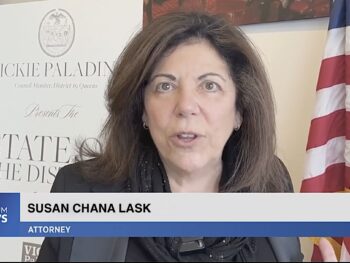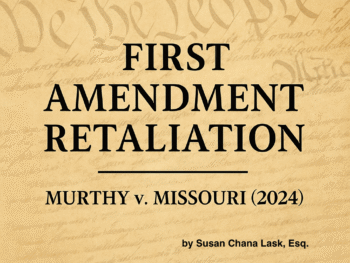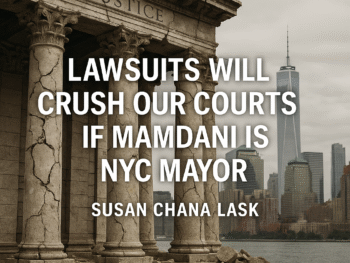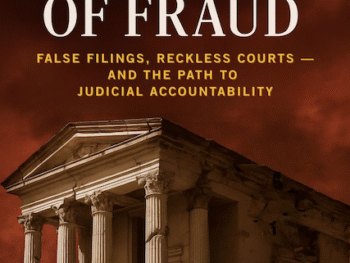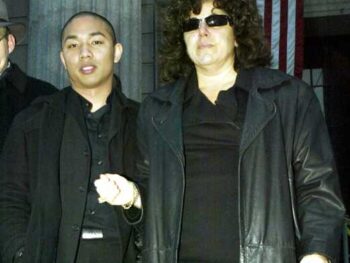No Crime, but an Arrest and Two Strip-Searches
By ADAM LIPTAK
Published: March 7, 2011

Aaron Houston for The New York Times
Albert W. Florence was held for eight days
in two counties on a civil contempt charge,
even though he had paid the relevant fine.
(March 8, 2011) Albert W. Florence believes that black men who drive nice cars in New Jersey run a risk of being questioned by the police. For that reason, he kept handy a 2003 document showing he had paid a court-imposed fine stemming from a traffic offense, just in case.
It did not seem to help.
In March 2005, Mr. Florence was in the passenger seat of his BMW when a state trooper pulled it over for speeding. His wife, April, was driving. His 4-year-old son, Shamar, was in the back. The trooper ran a records search, and he found an outstanding warrant based on the supposedly unpaid fine. Mr. Florence showed the trooper the document, but he was arrested anyway.
A failure to pay a fine is not a crime. It is, rather, what New Jersey law calls a nonindictable offense. Mr. Florence was nonetheless held for eight days in two counties on a charge of civil contempt before matters were sorted out.
In the process, he was strip-searched twice.
“Turn around,” he remembered being told while he stood naked before several guards and prisoners. “Squat and cough. Spread your cheeks.”
The treatment stung. “I consider myself a man’s man,” said Mr. Florence, a finance executive for a car dealership. “Six-three. Big guy. It was humiliating. It made me feel less than a man. It made me feel not better than an animal.”
The Supreme Court is likely to decide this month whether to hear Mr. Florence’s case against officials in New Jersey over the searches, and there is reason to think it will.
The federal courts of appeal are divided over whether blanket policies requiring jailhouse strip-searches of people arrested for minor offenses violate the Fourth Amendment. Eight courts have ruled that such searches are proper only if there is a reasonable suspicion that the arrested person has weapons or contraband.
The more recent trend, from appeals courts in Atlanta, San Francisco and Philadelphia, is to allow searches no matter how minor the charge. Some potential examples cited by dissenting judges in those cases: violating a leash law, driving without a license, failing to pay child support.
Although the judges in the majority in Mr. Florence’s case, the one heard in Philadelphia, said they had been presented with no evidence that the searches were needed, they nonetheless ruled that they would not second-guess corrections officials who said they feared that people like Mr. Florence would smuggle contraband into their jails.
The most pertinent Supreme Court decision, Bell v. Wolfish, was decided by a 5-to-4 vote in 1979. It allowed strip-searches of people held at the Metropolitan Correctional Center in New York after “contact visits” with outsiders.
On the one hand, such visits are planned and may provide opportunities for smuggling contraband in a way that unanticipated arrests do not. On the other, as Judge Marvin E. Frankel of Federal District Court in Manhattan wrote in the case in 1977, contact visits take place in front of guards. “The secreting of objects in rectal or genital areas becomes in this situation an imposing challenge to nerves and agility,” Judge Frankel wrote.
The recent decisions allowing strip-searches of all arrestees have said they were authorized by the Supreme Court’s Bell decision. In the Atlanta case, Judge Ed Carnes said that new inmates enter facilities there after “one big and prolonged contact visit with the outside world.”
In Mr. Florence’s case, the majority used interesting reasoning to justify routine strip-searches. “It is plausible,” Judge Thomas M. Hardiman wrote, “that incarcerated persons will induce or recruit others to subject themselves to arrest on nonindictable offenses to smuggle weapons or other contraband into the facility.”
Mr. Florence’s lawyer, Susan Chana Lask, said that would make sense if her client were “Houdini in reverse” — a master of becoming incarcerated though blameless, in the hope of passing along contraband to confederates waiting for him inside.
In his dissent in Mr. Florence’s case, Judge Louis H. Pollak, a former dean of Yale Law School, was also skeptical of the majority’s theory. “One might doubt,” he wrote, “that individuals would deliberately commit minor offenses such as civil contempt — the offense for which Florence was arrested — and then secrete contraband on their persons, all in the hope that they will, at some future moment, be arrested and taken to jail to make their illicit deliveries.”
In urging the Supreme Court not to hear Mr. Florence’s case, officials from Burlington County, N.J., allowed that “perhaps petitioner’s frustration is understandable.” But jails are dangerous places, the brief said. “It might even be argued that those arrested on nonindictable or other ‘minor’ offenses would be particularly anxious,” the brief reasoned, to make sure that everyone around them was thoroughly searched.
Mr. Florence’s son has drawn a lesson from what he saw from the back seat in 2005. “If he sees a cop and we’re together,” Mr. Florence testified in 2006, “he still asks, ‘Daddy, are you going to jail?’ ”

